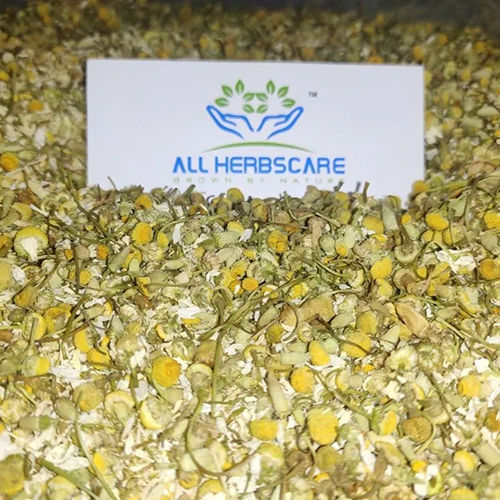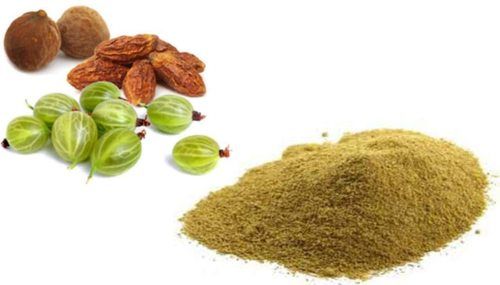- होम पेज
- कंपनी प्रोफाइल
-
हमारे उत्पाद
- प्राकृतिक जड़ी बूटियों के पाउडर
- हिबिस्कस फ्लावर
- प्राकृतिक मेंहदी पाउडर
- सूखे लैवेंडर बड्स
- आंवला पाउडर
- हरीतकी पाउडर
- गुडूची पाउडर
- सफ़ेद मूसली पाउडर
- होली बेसिल पाउडर
- शतावरी पाउडर
- हिबिस्कस पाउडर
- ब्राह्मी पाउडर
- भृंगराज पाउडर
- रीठा पाउडर
- गिलोय एक्सट्रैक्ट पाउडर
- प्राकृतिक मंजिष्ठा रूट पाउडर
- मोरिंगा की पत्तियों का पाउडर
- लेकोरिस रूट पाउडर
- स्टीविया पाउडर
- अश्वगंधा पाउडर
- प्राकृतिक लीकोरिस पाउडर
- सूखे तुलसी के पत्तों के पाउडर की सामग्री
- सूखे तुलसी के पत्तों का पाउडर
- नेचुरल्स ब्राउन तुलसी पाउडर
- तुलसी के पत्तों का पाउडर
- आयुर्वेदिक गिलोय पाउडर
- प्राकृतिक गुडूची पाउडर
- गिलोय पाउडर
- नीम गिलोय पाउडर
- भूमि आंवला पाउडर
- प्राकृतिक भूमि आंवला पाउडर
- अशोका पाउडर
- अर्जुन पाउडर
- गोखरू चूर्ण
- गुडमार पाउडर
- गोटुकोला पाउडर
- प्राकृतिक वेटिवर रूट पाउडर
- कालमेघ पाउडर
- प्राकृतिक कालमेघ रूट पाउडर
- प्राकृतिक पुनर्नवा पाउडर
- पुनर्नवा पाउडर
- सफ़ेद मुसली की जड़ का पाउडर
- पिलालिमूल पाउडर
- अम्बा हल्दी पाउडर
- अल्फाल्फा पाउडर
- व्हीट ग्रास पाउडर
- बबूल पाउडर
- प्राकृतिक बिभीतकी पाउडर
- बिभीतकी पाउडर
- त्रिफला पाउडर
- मंजिष्ठा पाउडर
- लॉन्च सीड पाउडर
- त्रिफला पाउडर
- हर्बल वेटिवर रूट पाउडर
- प्राकृतिक लौंच सीड पाउडर
- बटरफ्लाई ब्लू मटर फ्लावर
- ड्राई हिबिस्कस फ्लावर
- सूखी गुलाब की पंखुड़ियाँ
- कैमोमाइल फ्लॉवर
- सूखे फूल
- वानस्पतिक अर्क
- निर्जलित सब्जी पाउडर
- प्राकृतिक एवं आवश्यक तेल
- कॉस्मेटिक के लिए जड़ी बूटी पाउडर
- प्राकृतिक आंवला पाउडर
- लीकोरिस पाउडर
- तुलसी पाउडर
- वेटिवर रूट पाउडर
- हर्बल मंजिष्ठा पाउडर
- प्राकृतिक रीठा पाउडर
- प्राकृतिक ब्राह्मी पाउडर
- जटामांसी पाउडर
- एलोवेरा पाउडर
- ऑरेंज पील पाउडर
- अनार का छिलका पाउडर
- रोज पेटल पाउडर
- ऑर्गेनिक हिबिस्कस पाउडर
- सेना के पत्तों का पाउडर
- ऑर्गेनिक नेचुरल मेंहदी पाउडर
- प्राकृतिक इंडिगो पाउडर
- सब्जियाँ, फल और मसाला पाउडर
- चाय बैग सामग्री (काट और स्थानांतरित)
- प्राकृतिक कच्ची जड़ी-बूटियाँ
- सूखा लेमनग्रास
- सूखी मेंहदी
- सूखे बिछुआ के पत्ते
- सूखी हरी चाय की पत्तियां
- सूखे थाइम के पत्ते
- सूखे पेपरमिंट के पत्ते
- सूखे स्पीयरमिंट के पत्ते
- सूखे अजमोद के पत्ते
- सूखे तुलसी के पत्ते
- सूखे मोरिंगा के पत्ते
- सूखे स्टीविया के पत्ते
- सूखे मेथी के पत्ते
- सूखी शतावरी की जड़
- सूखे अश्वगंधा की जड़
- सूखा हुआ आंवला
- सोपनट हर्ब्स
- स्वास्थ्य देखभाल उत्पादों के लिए हर्बल सामग्री
- हरीतकी हरद हर्बल पाउडर
- रूबिया कॉर्डिफोलिया पाउडर
- निर्जलित पुदीने की पत्तियों का पाउडर
- विथानिया सोम्निफेरा पाउडर
- मोरिंगा ओलीफेरा लीव्स पाउडर
- एलो वेरा पाउडर
- शतावरी रेसमोसस रूट पाउडर
- टर्मिनलिया चेबुला पाउडर
- ग्लाइसीरिज़ा ग्लबरा रूट पाउडर
- स्टीविया स्वीटनर पाउडर
- स्टीविया लीव्स पाउडर
- अर्जुन बार्क पाउडर
- मुलेठी पाउडर
- अश्वगंधा पाउडर
- प्राकृतिक मंजिष्ठा पाउडर
- करी पत्ते का पाउडर
- मेथी पाउडर
- अमलाकी आंवला पाउडर
- बीट रूट पाउडर
- हर्बल मेथी पाउडर
- एम्ब्लिका ऑफ़िसिनैलिस पाउडर
- ऑर्गेनिक स्पिरुलिना पाउडर
- नोनी फ्रूट पाउडर
- बकोपा मोननेरी पाउडर
- बोसवेलिया सेराटा गम
- जौ घास पाउडर
- ब्रिंगराज हर्बल पाउडर एक्लिप्टा प्रोस्ट्रेटा
- कॉस्मेटिक उत्पादों के लिए हर्बल सामग्री
- नींबू के छिलके का पाउडर
- ओसीमम सैंक्टम पाउडर
- एलो बारबाडेंसिस पाउडर
- पुदीने की पत्तियों का पाउडर
- लीकोरिस रूट पाउडर
- प्राकृतिक इंडिगो पाउडर ग्रीन
- हर्बल मेंहदी पाउडर
- रीठा सोपनट हर्बल पाउडर
- हिना पाउडर
- रीठा हर्बल पाउडर
- शिकाकाई पाउडर
- हर्बल ब्राह्मी पाउडर
- अनार के छिलके का पाउडर
- अरिथा पाउडर
- भृंगराज पाउडर
- नीम की पत्तियों का पाउडर
- अश्वगंधा की जड़ें
- मुल्तानी मिट्टी मिट्टी
- ऑर्गेनिक आंवला पाउडर
- सूखे पत्ते
- सूखी जडी - बूटियां
- फूल चाय
- हर्बल चाय
- सूखा पाउडर
- सूखी गुलाब की पंखुड़ियाँ
- भारतीय आयुर्वेदिक जड़ी बूटियाँ
- बीज
- प्राकृतिक जड़ी बूटियों के पाउडर
- प्रमाणपत्रs
- संपर्क करें
कैमोमाइल फ्लॉवर
990 आईएनआर/Kilograms
उत्पाद विवरण:
- टाइप करें
- वैराइटी
- ब्रीड CHAMOMILE
- पार्ट
- रंग YELLOWS
- साइज 12 किग्रा
- तने की लंबाई मिलीमीटर (mm)
- अधिक देखने के लिए क्लिक करें
X
मूल्य और मात्रा
- किलोग्राम/किलोग्राम
- किलोग्राम/किलोग्राम
- 25
उत्पाद की विशेषताएं
- CHAMOMILE
- मिलीमीटर (mm)
- 24 माह महीने
- YELLOWS
- 12 किग्रा
व्यापार सूचना
- INDIA
- 5000 प्रति महीने
- 7 दिन
- No
- 10 Kg Box
- FSSAI, GMP, ISO, APEDA
उत्पाद वर्णन
Chamomile flower (Matricaria chamomilla or Chamaemelum nobile) is one of the most popular and versatile herbs used in both traditional medicine and modern wellness practices. Known for its calming, soothing properties, chamomile has been used for centuries to treat a wide range of health issues. Here are the most common uses of chamomile flower:
1. Medicinal Uses
Calming and Relaxation
- Stress and Anxiety Relief: Chamomile is widely known for its calming effects, making it one of the most popular natural remedies for stress, anxiety, and insomnia. Chamomile flowers contain flavonoids, such as apigenin, which bind to receptors in the brain, promoting relaxation and reducing anxiety. Drinking chamomile tea before bed is a common practice to help promote sleep and calm the mind.
- Sleep Aid: Chamomile is often used as a mild, natural sedative to help with insomnia and improve the quality of sleep. The relaxing effects of chamomile tea or extracts are believed to help ease the mind, making it easier to fall asleep.
Digestive Health
- Soothing Stomach: Chamomile has long been used as a remedy for digestive issues such as indigestion, bloating, and cramping. It has antispasmodic properties that help relax the muscles of the gastrointestinal tract, relieving discomfort. Chamomile tea is commonly consumed to treat gas, bloating, and mild digestive upset.
- Relieves Nausea: Chamomile can help reduce nausea and vomiting, particularly from digestive disturbances, motion sickness, or chemotherapy. Drinking chamomile tea or taking chamomile supplements can help soothe an upset stomach.
- Ulcer Relief: Chamomile may help reduce the pain and irritation associated with stomach ulcers. It promotes healing in the digestive tract and has anti-inflammatory properties that can reduce the irritation of ulcerated tissue.
Anti-inflammatory and Pain Relief
- Arthritis and Muscle Pain: The anti-inflammatory properties of chamomile make it useful for reducing pain and inflammation associated with conditions like arthritis and muscle soreness. Chamomile extracts, oils, or teas may help alleviate joint pain, stiffness, and inflammation when consumed or applied topically.
- Menstrual Cramps: Chamomile is sometimes used to alleviate menstrual cramps and discomfort. Its antispasmodic properties can help relax the muscles of the uterus, reducing cramps and pain.
Skin Care and Healing
- Soothing Irritated Skin: Chamomile has anti-inflammatory and antioxidant properties, making it beneficial for treating skin irritations, eczema, rashes, and other inflammatory skin conditions. Chamomile tea or chamomile extract is often used in topical creams and lotions designed to calm and heal the skin.
- Acne Treatment: Chamomile s anti-inflammatory properties can help reduce acne symptoms. It may also have mild antibacterial effects that can prevent new breakouts. Chamomile tea or chamomile-based skincare products are sometimes used to soothe acne-prone skin and reduce redness and irritation.
- Sunburn Relief: Chamomile is often included in sunburn relief products due to its soothing and anti-inflammatory effects. A chamomile infusion can be applied to sunburned skin to help reduce redness, swelling, and discomfort.
Immune Support
- Cold and Flu Relief: Chamomile has mild antimicrobial properties and can help boost the immune system. It is commonly used to treat the common cold, coughs, and sore throats. Drinking chamomile tea can help soothe the throat, reduce inflammation, and relieve symptoms of the cold or flu.
- Antioxidant Support: Chamomile is rich in antioxidants, which help protect the body s cells from oxidative stress and damage caused by free radicals. This may have long-term health benefits, including improving immune function and reducing the risk of chronic diseases.
2. Cosmetic Uses
Skin Care
- Chamomile Face Masks: Chamomile is frequently used in skincare products like face masks, cleansers, and toners due to its soothing and anti-inflammatory properties. It helps calm irritated skin, reduce redness, and promote healing. Chamomile is ideal for sensitive skin and is often used in products designed to reduce inflammation from conditions like acne, rosacea, or eczema.
- Under-Eye Treatment: Chamomile tea bags, after being chilled, are often used as an under-eye compress to reduce puffiness, dark circles, and inflammation. The anti-inflammatory properties of chamomile can help calm and soothe tired eyes.
- Anti-aging Properties: The antioxidants in chamomile, such as flavonoids, can help fight free radical damage and support healthy skin aging. Chamomile can help reduce the appearance of fine lines and wrinkles and maintain skin s elasticity and vitality.
Hair Care
- Natural Hair Lightener: Chamomile is sometimes used as a natural hair lightener, especially for those with blonde or light brown hair. Rinsing hair with chamomile tea or applying a chamomile-infused oil can subtly lighten hair over time, enhancing natural highlights and giving hair a sun-kissed look.
- Soothing Scalp Treatments: Chamomile can be used to soothe a dry, itchy scalp. Its anti-inflammatory properties help reduce irritation, and it can help calm the skin and reduce dandruff.
3. Culinary Uses
Herbal Tea
- Chamomile Tea: One of the most popular ways to consume chamomile is as a tea. Chamomile tea is known for its gentle, soothing properties, and it is often consumed before bed to promote relaxation and sleep. The tea can be made from dried chamomile flowers, which can be steeped in hot water for several minutes.
- Flavoring Agent: Chamomile can be used as a flavoring in certain dishes, desserts, or baked goods. It pairs well with fruit salads, jellies, syrups, and can be used in making infused honey or syrups.
Infused Honey and Syrups:
- Chamomile-infused honey is often used as a sweetener or as a remedy for sore throats and digestive issues. Chamomile syrups can also be made by infusing chamomile flowers in water and sugar, then used as a topping for desserts or in beverages.
4. Aromatherapy
- Chamomile Essential Oil: Chamomile essential oil (particularly Roman Chamomile) is used in aromatherapy for its calming, sedative effects. It is often used in diffusers or added to massage oils to relieve stress, promote relaxation, and aid sleep. Chamomile oil is also used in baths for relaxation and muscle relief.
- Soothing Inhalation: Chamomile can be used as part of an essential oil blend for soothing inhalation to relieve stress, anxiety, or even respiratory issues.
5. Traditional and Herbal Medicine
- Herbal Remedies: Chamomile has been used in traditional herbal medicine for centuries to treat a wide variety of ailments, from digestive issues and skin problems to colds and flu. It is often found in herbal medicine formulations, including teas, tinctures, and capsules.
- Ayurvedic Use: Chamomile is used in Ayurvedic medicine to balance Vata and Pitta doshas. It is believed to have cooling, calming, and soothing properties that are beneficial for conditions involving stress, anxiety, or inflammation.
Tell us about your requirement

Price: Â
Quantity
Select Unit
- 50
- 100
- 200
- 250
- 500
- 1000+
Additional detail
मोबाइल number
Email
प्राकृतिक जड़ी बूटियों के पाउडर अन्य उत्पाद
 |
ALL HERBSCARE
सर्वाधिकार सुरक्षित.(उपयोग की शर्तें) इन्फोकॉम नेटवर्क प्राइवेट लिमिटेड . द्वारा विकसित एवं प्रबंधित |








